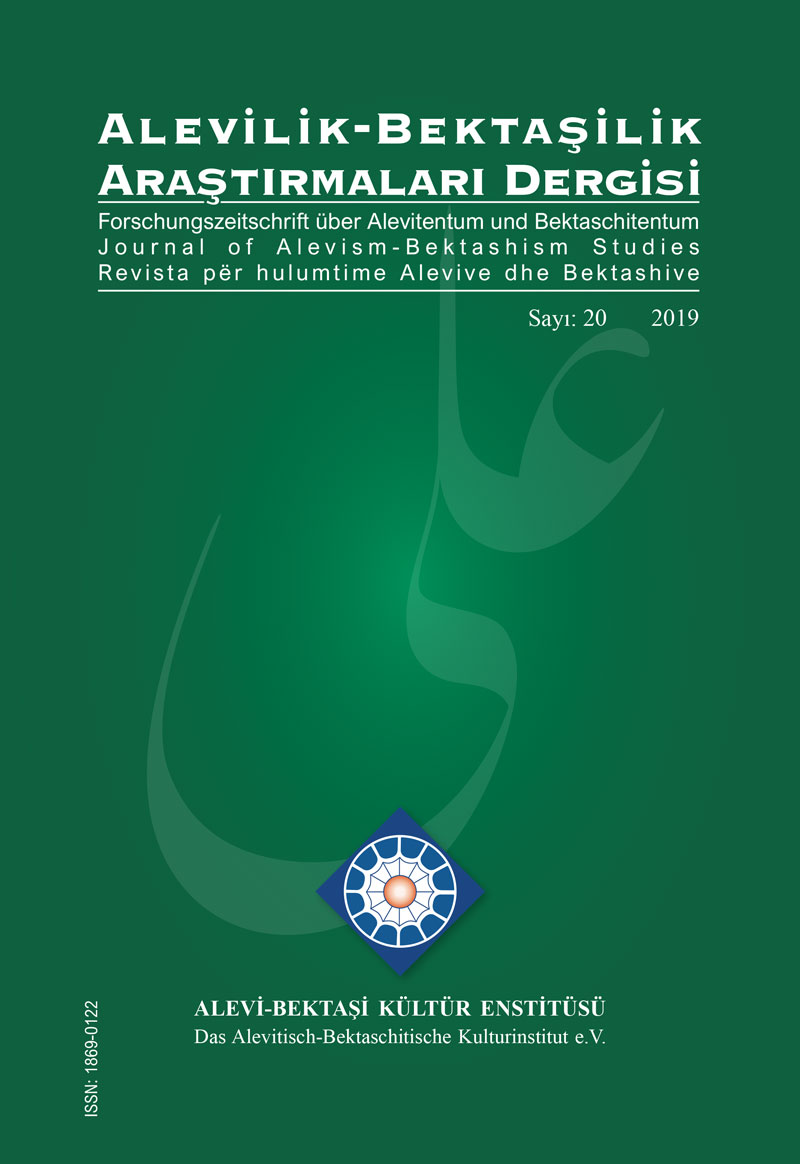ALI-VERGÖTTERER (ALI ILAHIS): Eine Reportage über den Glauben der Ali-Vergötterer und über die Seyyid İnayed Geschichten (2014)
DOI:
https://doi.org/10.24082/2019.abked.234Schlagworte:
Ali-Vergötterer (Aliyü’l İlâhi), Leute der Wahrheit (Ahl-i Haqq), Sultan İshak, Nusayri, Oraman, Buddha, SchamaneAbstract
Obwohl viele der religiösen Praktiken der Ali-Vergötterer (Ali Ilahis), auf welche die russischen Orientalisten im Rahmen ihrer Untersuchungen der Gemeinschaften der “Leute der Wahrheit” (Ahl-i Haqq) im 18. Jahrhundert und zu Anfang des 19. Jahrhunderts aufmerksam wurden, identisch sind mit denen der “Leute der Wahrheit”, so gibt es auffälligerweise auch einige grundlegende Unterschiede: Die Region um Kerend-Oraman (Orman, Horoman, Hewraman) Lek–Delfan, welche das Zentrum des Glaubens der “Leute der Wahrheit” bildet, befindet sich auf der Route Hamandan-Kirkuk, an der heutigen iranisch-irakischen Grenze, im mitteleren Zagros-Gebirge, an der nordwestlichen Ecke des Iranischen Loristan (in der heutigen Provinz Kermanshah). Die Region Lek-Delfan, die sich seit Jahrhunderten exakt im Zentrum der Route befindet, von der aus die Hirtengemeinschaften im Sommer den Aufstieg auf das Hochland und im Winter den Abstieg zu den Winterlagern (Winterlager: Kaserne, Feldlager, Quartier) in den warmen Ebenen antreten, liegt zugleich auch auf der wichtigsten Route für Pilgerfahrt-Migration und Handel, die in Richtung Ost-West liegt. Die Ali-Vergötterer und die Leute der Wahrheit haben gegenwärtig viele religiösen Rituale gemeinsam. Die Ali-Vergötterer bezeichnen sich selbst auch im Allgemeinen als Leute der Wahrheit (Hünkâri, Hâvendigâri, Hüdavendigâri). So wie man davon sprechen kann, dass sich die Mannigfaltigkeit in der Region aus der unterschiedlich geprägten religiösen und ethnischen Struktur ergibt, genauso kann man es auch als eine zwangsläufige Wahrheit feststellen, dass sich auch Ähnlichkeiten und Übergänge unter diesen Gruppen, welche die gleiche Region teilen, ergeben. İltimas Ahmediyan, über den wir unsere Reportage verfaßt haben, beschreibt sich selbst als einen im iranischen Aserbaidschan geborenen Türken, der in Täbris lebt und ein Ali-Vergötterer ist.
Während den Glaubenskern der Ali-Vergötterer die Göttlichkeit von Ali (als Gottheit) bildet, steht im Glaubenszentrum der Leute der Wahrheit, wie dies in der heiligen Schrift Serencam zu verfolgen ist, Sultan Ishak (und die Hülle (don), dass heißt die Form). Die Ali-Vergötterer fühlen sich der geistigen Führung des irakisch stämmigen Seyyid Abdullah Musavi el-Iraki verbunden. Der Vater von İltimas Ahmediyan, über den ich hier eine Reportage verfaßt habe, ist der direkte Zeuge und Erzähler der Geschichten von Seyyid İnayed. Es handelt sich hierbei um wertvolle religiöse Erinnerungen, die im Hause und im Dorf von Ahmediyan wiederholt überliefert wurden. Ich hoffe, dass diese Reportage zu einem objektiveren Blick auf die Ali-Vergötterer und ihren Glauben beiträgt. Die Reportage wurde im Jahre 2014 in Täbris verfaßt. Im Jahre 2015 habe ich eine Reise in die Region Loristan unternommen, wo der Glaube der Leute der Wahrheit intensiv praktiziert wird.








